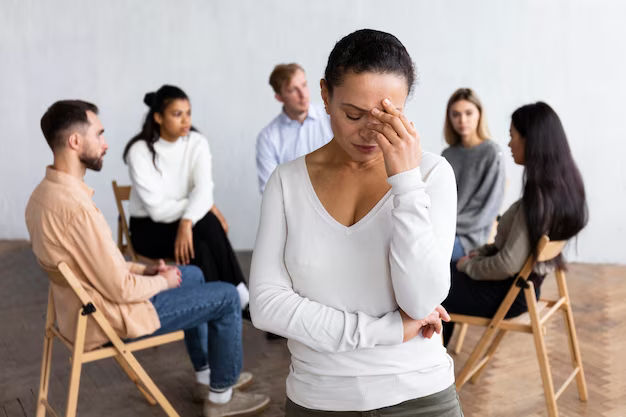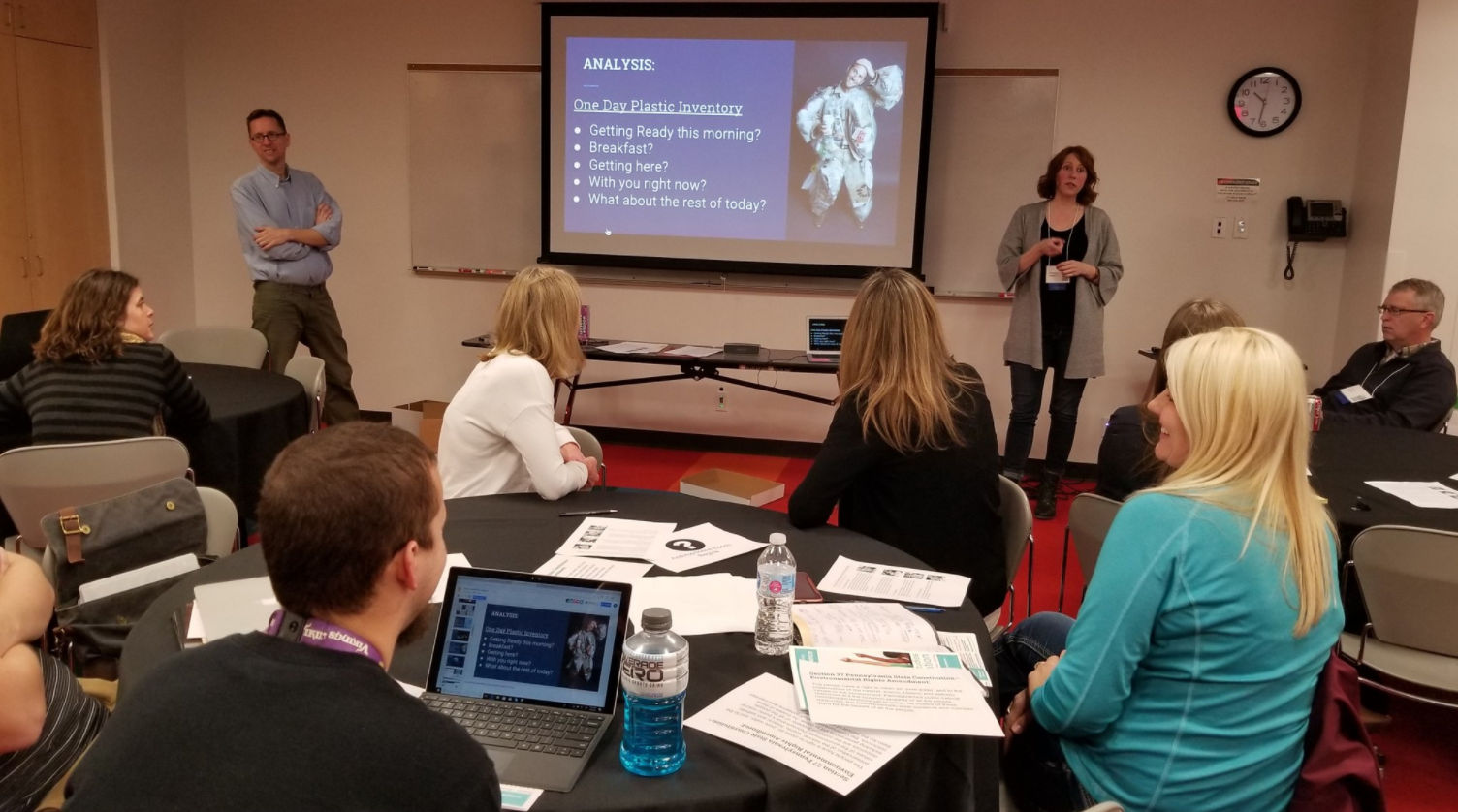Social Anxiety Disorder
A persistent and intense fear of social situations is known as social anxiety disorder, or social phobia.

What Is Social Anxiety Disorder or Social Phobia?
Everyone has experienced anxiety or discomfort in social settings. Perhaps before giving a large presentation, you've experienced sweaty palms or clammed up when meeting someone new. Not everyone finds public speaking or entering a room full of strangers exciting, but most individuals can do it.
These scenarios are too stressful for someone with social anxiety disorder, also called social phobia. For example, you may feel so uncomfortable doing things that other people would consider "normal"—like making small chats and eye contact—that you decide to avoid all social interaction. Not just the social side of things could start to unravel in your life.
In the US, 5.3 million people suffer from social anxiety disorder. It usually starts in the teenage years, between the ages of 11 and 19. Since it's one of the most prevalent mental illnesses, there is hope if you're affected. The hardest thing is knowing when to seek assistance. Here's how to tell if your social quiet is more than just shyness and indicates that you should visit a doctor.
When Does It Happen?
Some individuals with social anxiety disorder only experience fear in one or two specific scenarios, such as approaching strangers or speaking in public. Some people experience extreme anxiety and fear in any social setting.
Different people can experience social anxiety disorder in different ways. However, the following are some typical circumstances that people frequently struggle with:
- Talking to strangers
- Speaking in public
- Dating
- Making eye contact
- Entering rooms
- Using public restrooms
- Going to parties
- Eating in front of other people
- Going to school or work
- Starting conversations
You may not have an issue with any of these scenarios. Giving a speech, for instance, could be simple, but attending a party might be a nightmare. Alternatively, you might excel in one-on-one interactions but struggle to manage a busy classroom.
Every socially anxious person has a unique reason for being afraid of specific circumstances. However, generally speaking, it's an intense fear of:
- Being judged or watched by others in social situations
- Being embarrassed or humiliated -- and showing it by blushing, sweating, or shaking
- Accidentally offending someone
- Being the center of attention
What Does It Feel Like?
Once more, each person's experience may vary, but if you have social anxiety and are in a stressful circumstance, you might experience the following symptoms:
- extremely bashful in social settings
- a chronic, strong, and ongoing fear of being evaluated by others
- shy and uneasy in social situations (such as during a presentation or group discussion)
- reticent to converse with others
- The necessity to look away
Additionally, you may experience bodily symptoms like:
- hurried heart rate
- tense muscles
- Lightheadedness and dizziness
- bluish
- Weeping and crying
- Digestion issues and diarrhea
- being unable to breathe
- An "out-of-body" experience
Before an event, you might have symptoms and anxiety right away, or you might worry about it for weeks. You might then devote a great deal of time and mental effort to second-guessing your actions.
What Causes It?
The cause of social anxiety disorder is not singular. You're more likely to develop social anxiety if you have a family member who does. This suggests that genetics may play a role. The amygdala, the area of the brain that regulates your fear response, may also be hyperactive.
The onset of social anxiety disorder typically occurs at age 13. It may be connected to past mistreatment, intimidation, or teasing. Along with children whose parents are pushy or controlling, shy kids are also more likely to grow up to be socially nervous adults. Social anxiety may also arise if you have a medical condition that makes people notice your voice or looks.
How Can It Affect Your Life?
Living with a social anxiety disorder is impossible. You'll stay out of circumstances that most people would deem "normal." You may even find it difficult to comprehend how others are able to deal with them so readily.
Your personal relationships suffer when you avoid most or all social interactions. It may also result in:
- Poor self-worth
- negative ideas
- Depressive States
- Easily offended by criticism
- Inadequate social skills that remain unchanged
What Can I Do About Social Anxiety Disorder?
You might require treatment if your social anxiety prevents you from achieving your goals, maintaining friendships, or accomplishing activities you need to do.
Speak with a medical professional or therapist who specializes in treating social anxiety disorder about your concerns and fears. They will be able to determine whether you require treatment or if your social anxiety is just typical.
How Is Social Anxiety Disorder Treated?
For social anxiety disorder, behavioral therapy and prescription medication are the two most successful therapies. Both might be given to you simultaneously. Below are some specifics about each:
Medications: For certain people, using a prescription drug is a simple and efficient way to manage social anxiety disorder. The painful and frequently embarrassing symptoms are lessened by the medications. Medication might occasionally significantly lessen or even completely eradicate your problems. A medicine may not benefit some people at all, and it may not even react for others. It is impossible to know if a medicine will be beneficial to you or not. Occasionally, you have to test a few before you find the one that works.
Paxil, Zoloft, Luvox, and Effexor are the four medications for social anxiety disorder that the Food and Drug Administration (FDA) has approved. While they are the only drugs authorized especially for the ailment, other drugs may also be used effectively.
One benefit of taking drugs is that they just need to be taken once a day and can be quite effective. However, there are drawbacks.
First of all, medicine merely addresses symptoms. Your symptoms may reappear if you stop taking it. Second, adverse effects from anxiety drugs happen to some people. Headache, nausea, stomachache, and trouble sleeping are a few of them.
Additionally, the FDA has issued warnings for all medications approved for the treatment of social anxiety disorder, including those used to treat depression. According to the FDA, the drugs may contribute to or exacerbate suicide thoughts or actions in young persons younger than 24. Teens who use these medications should therefore be constantly watched for any changes in their suicidal thoughts.
The benefits of medicine often outweigh the drawbacks for most people. Your doctor and you need to consider your options.
If you take medication for social anxiety disorder and experience any negative effects, such as depression or sadness, contact your doctor right away. Additionally, you should always see your doctor before stopping any anxiety medication. Abruptly discontinuing an anxiety medication could have detrimental adverse effects.
Behavioral therapy: Working with a qualified therapist, you can recognize and alter the thoughts that cause you to feel uneasy in social settings.
For social anxiety disorder, exposure treatment is a kind of behavioral therapy that is widely utilized. In order for exposure therapy to be effective, you must be gradually exposed to socially awkward circumstances and wait until you are at ease. Your brain is learning during this process that a social scenario you were terrified of is not as horrible as it seems.
The majority of therapists who use exposure therapy start their patients with mildly uncomfortable settings and progress to more challenging ones as soon as they feel comfortable. The benefit of this therapy is that it addresses the underlying issue rather than just the outward manifestations of social anxiety. Therefore, the likelihood of your symptoms returning is reduced if you discontinue behavioral therapy.
Other therapies
For the treatment of social anxiety disorder, many therapies have also been attempted. They consist of:
Relaxation therapy: This therapeutic method teaches you how to relax through practices like meditation and breathing exercises. While some specific social phobias may benefit from relaxation therapy, general anxiety disorder is not thought to be effectively treated by this approach.
Beta-blockers: These drugs were originally used to treat high blood pressure or other cardiac conditions. However, beta-blockers are also beneficial in treating certain persons with a type of social phobia known as "performance social anxiety." This is when you are terrified of performing, such as giving a public speech. Beta-blockers are ineffective for treating generalized social anxiety disorder. However, they may be useful if your problem is anxiety about a certain event occurring at a specified, known moment, such as giving a speech in front of a class.
When Should I Talk to My Doctor About Social Anxiety?
To begin, it is critical to understand that you are not odd if you suffer from social anxiety. It is widespread. If you experience exceptionally high anxiety and fear of social situations, discuss therapy options with your doctor. Untreated social anxiety disorder can lead to depression, drug or alcohol issues, school or work troubles, and a low quality of life.














